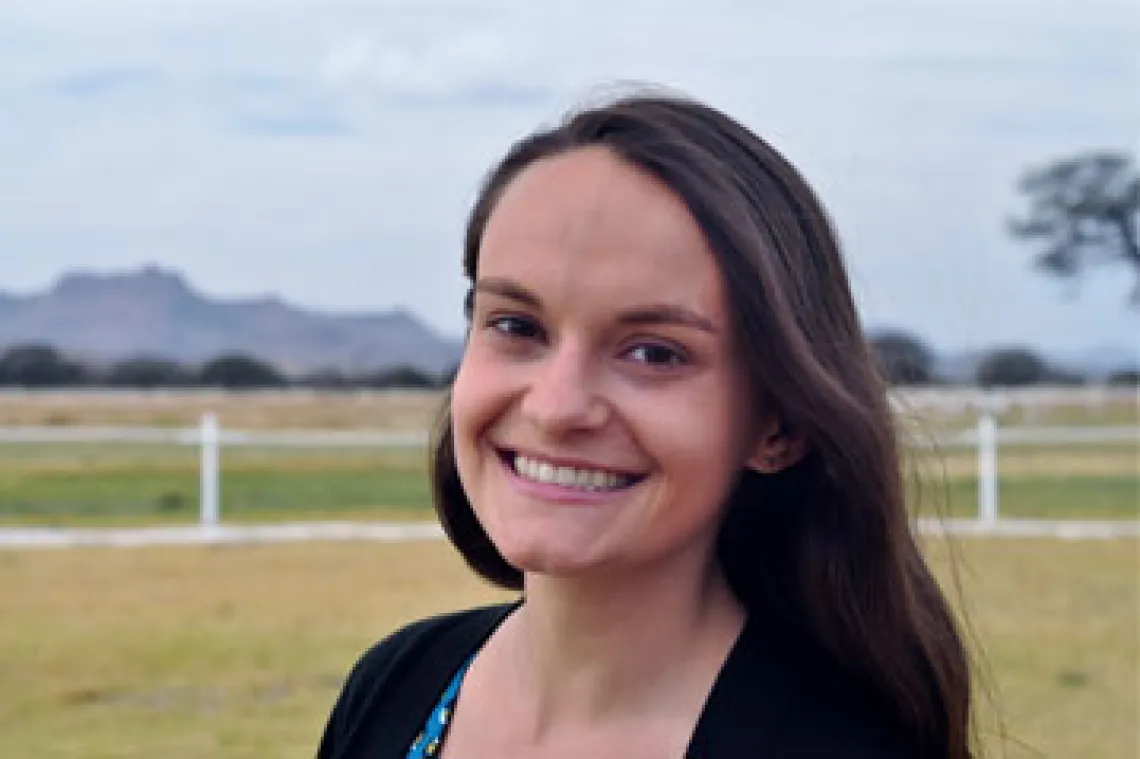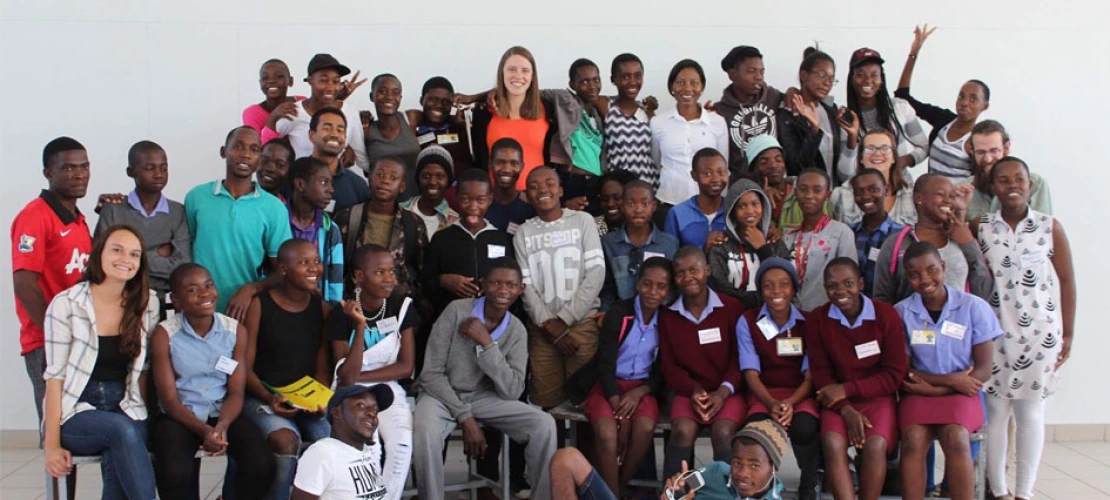Community-Driven: Lena Porell '20 MS Urban Planning
Lena Porell served as a Peace Corps Volunteer in Namibia before joining CAPLA's Master of Urban Planning program.

The University of Arizona is proud to offer generous Coverdell Fellowships to Returned Peace Corps Volunteers (RPCVs) who are enrolled in an urban planning graduate program. The Coverdell Program provides tuition assistance and internship opportunities. Coverdell Fellows find a robust Peace Corps community at the University of Arizona and in Tucson, and many are CAPLA alumni.
Peace Corps Experience
Lena Porell '20 MS Urban Planning served as an English educator in Namibia from 2015 to 2017 after a long-standing desire to become a Peace Corp Volunteer (PCV). Through her service, Lena grew increasingly interested in community development and grassroots planning as the most effective way to make an impact on communities in need. While in Namibia, she co-founded a youth leadership development program called Serve 2 Lead which was focused on project management and community service. She also co-founded a community garden and girl’s empowerment club.
In Namibia, she saw firsthand what can happen to vulnerable populations when there is a lack of infrastructure and comprehensive urban planning. She saw how cities develop when there is no zoning code in place. Every year, her village and town experienced many feet of flooding, yet towns and villages had no way to stop people from building homes in flood-prone areas. Lack of oversight also resulted in environmental hazards next to schools, markets and homes.
She witnessed the success and sustainability of small scale, community-driven projects that sought to tackle these issues, compared to large government projects and programs that sometimes lacked community engagement and proper implementation.
Path to Urban Planning
Based on her growing interest in grassroots development efforts, she wanted to gain the urban planning and design skills she would need for an impactful career in community development. After her undergraduate experience in a large program at American University in Washington, D.C., Lena knew she wanted more individual attention in graduate school. A search for skills-focused planning programs that offered Coverdell Fellowships led her to the University of Arizona, where she found a smaller program with opportunities for networking and research.
Coverdell Fellowship
As a Youth Coordinator with the Ironwood Tree Experience, Lena runs Youth Action Corps, a youth leadership program which includes community development projects and outdoor youth experiences. She also leads the Community Action Toolkit program, which gives high school students community engagement and project management skills, training them to become project specialists who work with local Tucson communities to implement "do it together" community driven projects.
Career Plans
Lena is primarily interested in community development and affordable housing, especially in the nonprofit sector. After graduation she hopes to help create affordable housing developments that create community connections and provide services and amenities that are beneficial to residents, such as community centers, work spaces, community kitchens, spaces for classes and workshops, and daycare centers.







